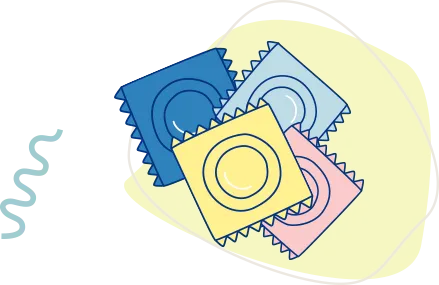Gonorrhoea
Gonorrhoea is a sexually transmissible infection (STI) which is sometimes called 'the clap'. In Western Australia, gonorrhoea is the second most common STI.
Because gonorrhoea does not often have symptoms, the best way you know you have gonorrhoea is having an STI test.
If left untreated, gonorrhoea can make you infertile.
Gonorrhoea is passed on through unprotected vaginal, anal or oral sex with someone who has gonorrhoea. Unprotected sex is sex without a condom.
Symptoms
Most people don't have symptoms.
People with a vagina may notice:
- A burning sensation when passing urine
- an unusual vaginal discharge
- pain in the lower belly
- sore throat.
People with a penis may notice:
- A burning sensation when passing urine
- yellow discharge from their penis
- sore throat.


Prevention
- Always use condoms or dams and water-based lubricant.
- Before you have sex, talk with your partner about the importance of safe sex.
- Get regular STI tests.
- Use our free online test to see if you qualify for a chlamydia or gonorrhoea test.
- To find a sexual health service near you for STI testing use our Find a Service feature.
Treatment
Treatment is a simple course of antibiotics. You should not have sex (even with a condom) until you finish all the antibiotics.
Your doctor will ask about your sex partners because they could have gonorrhoea and it is important they get tested and treated too.
The doctor can help you tell your sexual partner/s.



